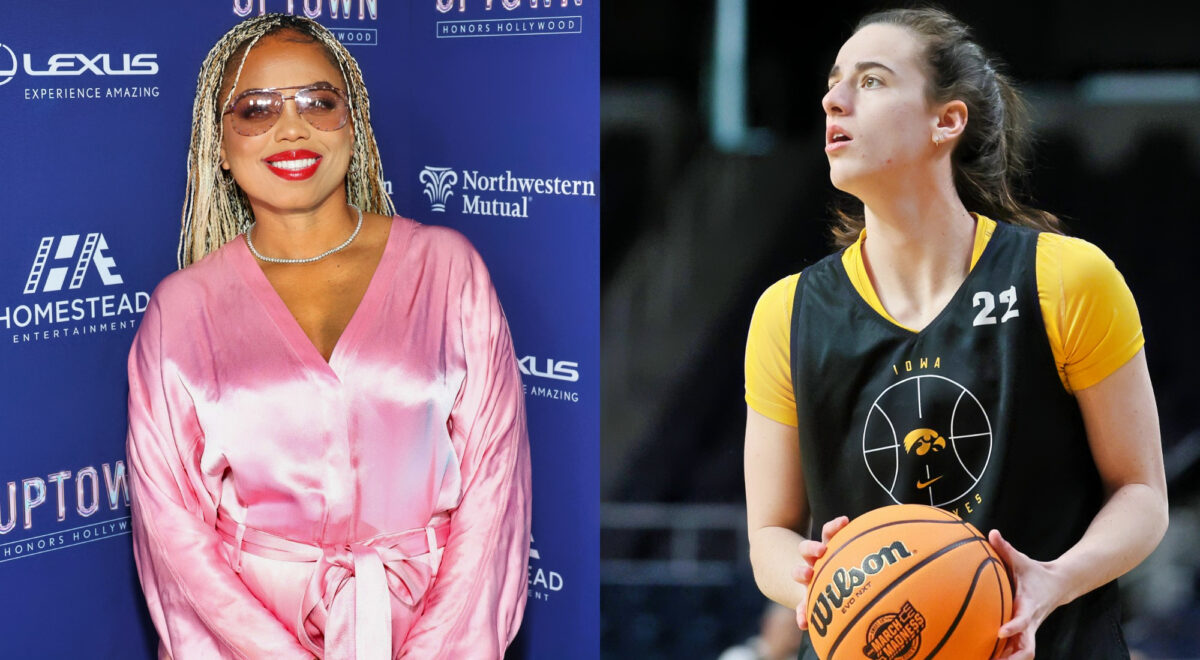In the world of women's professional basketball, Caitlin Clark has quickly risen to stardom after a record-setting senior season at the University of Iowa. As the number one overall pick in the 2021 WNBA draft, Clark has received widespread media attention and a lucrative $28 million Nike sponsorship deal. However, some are questioning whether her race and sexuality played a role in her popularity, especially in a league that is predominantly made up of Black players and LGBTQ athletes.
Jemele Hill, a former ESPN host and current writer for The Atlantic, believes that both Clark's race and sexuality have contributed to her marketability as a WNBA player. In an interview with the LA Times, Hill stated, "We would all be very naive if we didn't say race and her sexuality played a role in her popularity." She goes on to explain that while Clark's success is certainly something to be celebrated, it also brings to light the erasure of Black women in the league and the worth and marketability placed on different players.
Hill specifically calls out brands like Nike, arguing that their focus on Clark's marketability highlights the erasure of Black women in the WNBA. "There’s plenty of room to highlight and celebrate Caitlin Clark’s popularity while also discussing ways in which to not erase Black women from a league that they have built and continue to build," Hill states.
Nicole Melton, co-director of the Laboratory for Inclusion and Diversity in Sport at the University of Massachusetts, also supports Hill's stance, noting that Clark's image fits into a "comfortable" narrative for many people in the United States, as she is a white, straight woman from the heartland.
These statements follow similar comments made by Las Vegas Aces center A’ja Wilson, who suggested that Clark's race is a factor in her popularity. In an interview, Wilson stated, "I think it's a huge thing. I think a lot of people may say it's not about Black and White, but to me, it is."
She goes on to explain that even as Black women work hard and excel in their careers, they are often overlooked and not seen as marketable. Wilson's frustration with this issue is evident as she proclaims, "That's why it boils my blood when people say it's not about race because it is."
However, it is also important to acknowledge that Caitlin Clark's talent and hard work cannot be ignored in her rise to fame. As a record-setting college player and now a top prospect in the WNBA, Clark has undoubtedly earned the attention and support she has received. Her sponsorships and media coverage are a direct result of her skills on the court and marketability as an athlete, rather than just her race and sexuality. The fact that there is room for more diversity and representation in the league does not take away from Clark's achievements.
Some may argue that Clark's race and sexuality should not be brought into the conversation at all, as it takes away from her individual success and hard work. However, it is important to have these discussions and address the systemic issues within the sports industry that contribute to the underrepresentation and erasure of marginalized communities. Clark herself has acknowledged the privilege she holds as a white, straight athlete and has used her platform to advocate for LGBTQ rights and support Black Lives Matter.
In response to the focus on Clark's race and sexuality, the WNBA has expressed its commitment to diversity and representation within the league. In a statement to the LA Times, a WNBA spokesperson stated, "The WNBA stands for diversity, equality, and inclusiveness, and we are proud to have so many remarkable women from all walks of life representing our league on the court and in our communities." The league continues to make strides in promoting diversity and supporting social justice causes, but it is clear that more progress can and should be made.
In the end, Caitlin Clark's success cannot be solely attributed to her race and sexuality, but it would be naive to overlook the role these factors may have played in her marketability and popularity. As the WNBA grows and evolves, it is crucial to continue having these conversations and taking steps toward creating a more inclusive and equitable league for all players. Clark's story may have brought these issues to the forefront, but it is up to the entire sports community to work towards a brighter and more diverse future in professional sports.

